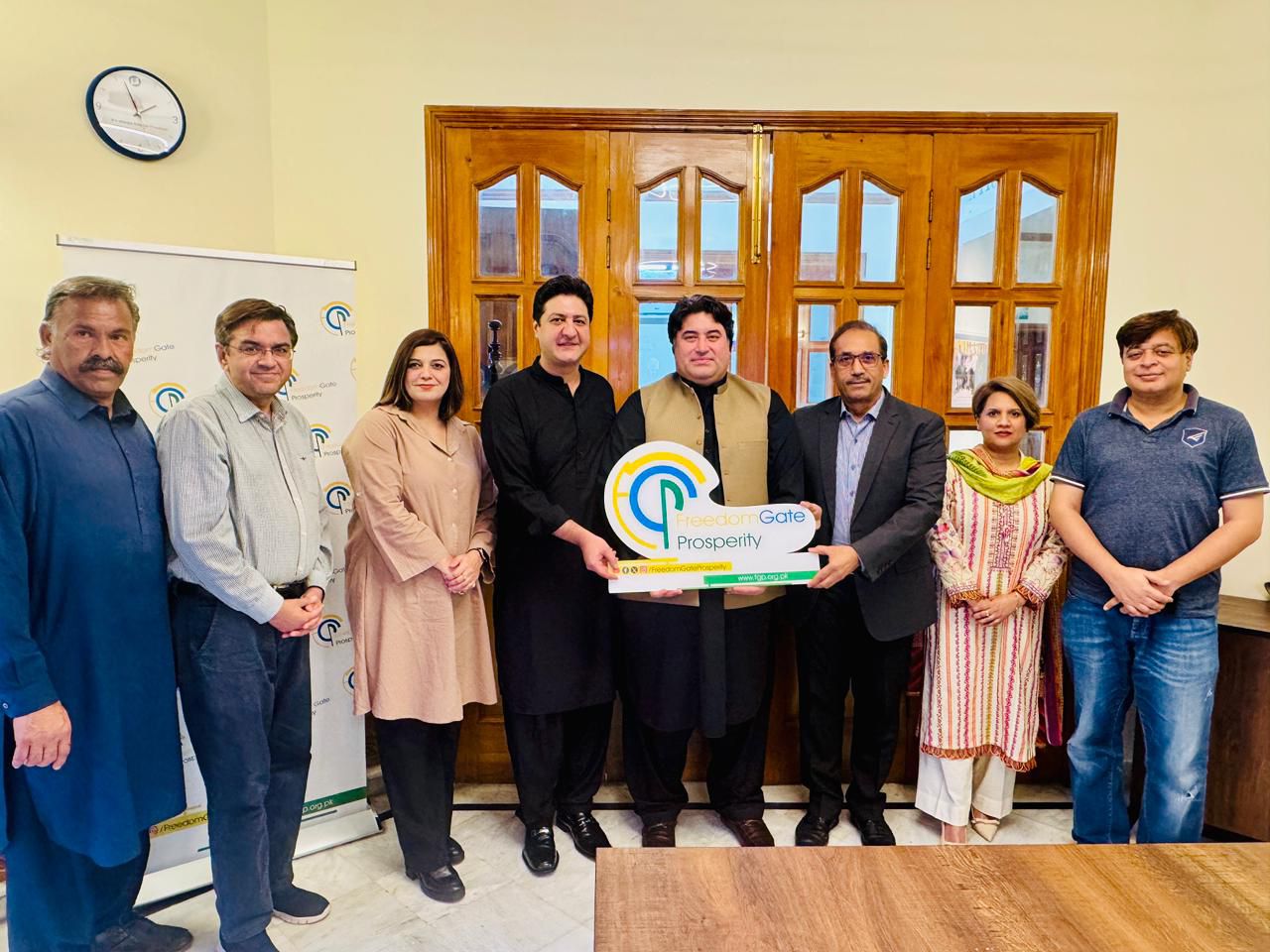Staff Report
ISLAMABAD: Beyond humanitarian assistance, what Afghan communities truly need is long-term investment in skills, livelihoods, and dignity,” stated Shakeel Muhammad Khan Safi, Commissioner for Afghan Refugees (CAR), Khyber Pakhtunkhwa.
Safi made this statement during the latest episode of Freedom Gate Dialogues, an insightful podcast series by Freedom Gate Prosperity (FGP), featured an exchange with host Arooj Raza Sayyami. During the discussion, Safi reflected on the challenges and evolving needs of the Afghan refugee population in Pakistan, particularly in Khyber Pakhtunkhwa, where the largest number of refugees reside.
Highlighting CAR’s commitment to empowering youth and women in refugee camps, Safi underlined the importance of technical and vocational training, education access, and community-based resilience-building. He acknowledged the socio-economic vulnerabilities faced by Afghan refugees and called for greater collaboration with local NGOs, development partners, and private sector actors to scale support for self-reliance.
The dialogue also touched upon the impact of climate change on refugee communities, especially in disaster-prone districts of KP. Safi noted that preparedness, early warning systems, and disaster-resilient infrastructure must be integrated into refugee management strategies.
Speaking about the avenues of collaborations with FGP, including on skill development initiatives, Safi appreciated FGP’s continued focus on inclusive economic empowerment and expressed optimism about joint efforts to pilot practical models of community integration, enterprise development, and climate-adaptive interventions.
Muhammad Anwar, CEO of FGP, thanked Mr. Safi for his participation, stating, “It is critical that refugee voices and those who represent them are part of our development conversations. We are committed to supporting dignified livelihoods and creating platforms where collaborative solutions can emerge.”
The session concluded with a shared resolve to work towards building more resilient, inclusive, and hopeful futures for refugee populations, particularly in underserved regions of Khyber Pakhtunkhwa.

